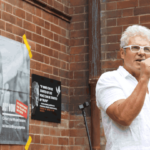Does the Nation’s Chief Lawmaker Really Want to Protect Public Service Whistleblowers?

In 2013, attorney general Mark Dreyfus, in an earlier stint in the role, oversaw the drafting and enactment of the Public Interest Disclosure Act 2013 (Cth) to establish “a framework to encourage and facilitate reporting of wrongdoing by public officials in the Commonwealth public sector”.
However, those who’ve been paying attention to the execution of a whistleblower hitlist brought into existence under then attorney general Christian Porter in 2018, which has since been allowed to continue under Dreyfus, have likely smiled wryly on reading the ostensible aim of his PID legislation.
Indeed, of the three public officials on the list, the AG’s laws protected one in terms of making his disclosure, as the PID Act urges one to. But when it comes to how he proved his case, so it could be taken seriously, he’s not covered for that, and the state want to throw him in gaol because of it.
As public outcry over the pursuit of the public service whistleblowers and one of their lawyers heightened, Dreyfus said from opposition that he’d reform the PID system, as he’d known it to be wanting, as was obvious as all who’d been encouraged to speak out were then being prosecuted.
But when Dreyfus retook the office of chief lawmaker in mid-2022, the case against one of the key whistleblowers, Witness K, was done and dusted, and the returned AG dropped the prosecution against K’s “co-conspirator” barrister Bernard Collaery, who was not a public service whistleblower.
And since November 2022, Dreyfus has embarked on a process of overhauling the PID Act, presumably to better protect those it encourages to report on wrongdoing by public officials. Yet, he’s also permitted the last two whistleblowers’ prosecutions to continue for doing just that.
So, the question that’s really begging to be asked right now is whether the attorney general has ever been serious about protecting public service whistleblowers for exposing government crimes, as he fudged the project the first time and he continues to mercilessly punish those who followed his cue.
Feigned protections
In his 19 June 2013 second reading speech on the PID Act, Dreyfus outlined that it established a “single comprehensive scheme to support inquiry into wrongdoing” in the federal public sector. It was the first standalone bill for these types of disclosures, and several inquiries had called for it.
“A main purpose of the bill is to establish clear procedures for allegations of wrongdoing to be reported by public officials,” the attorney general said. And “the emphasis on the scheme is on the disclosure of wrongdoing being reported to and investigated within government”.
“To this end,” Dreyfus continued, “the bill places obligations on principal officers of agencies to ensure that public interest disclosures are properly investigated, and that appropriate action is taken to deal with recommendations relating to their agency.”
The process is roughly, if a public servant is aware of corruption, they must initially inform their seniors. But if due attention isn’t provided by management, the discloser can go to the relevant watchdog with the issue. But if this fails, then the discloser can expose the wrongdoing to the public.
All three whistleblowers, K, David McBride and Richard Boyle did raise their complaints internally, and in all three cases the matter was left unresolved. But when each took the step of exposing corruption, these public interest disclosers weren’t congratulated but were rather criminalised.
And Dreyfus’ PID Act failed them all. In terms of K, the law didn’t permit intelligence disclosers to go public. So, he pleaded guilty and was sentenced to a three-month suspended sentence, as well as a 12-month good behaviour bond, which was perhaps quite a light penalty, but he was a higher up.
While for ex-ADF lawyer David McBride, he hadn’t followed the PID process precisely in exposing war crimes, but the authorities blocked him from attempting his defence under PID law anyway. And in May, he was sent away for 5 years and 8 months, with non-parole set at 2 years and 3 months.
Encouraged into crime
But the case that calls Dreyfus’ assertion that his laws were to encourage public servants in blowing the whistle on government corruption into question, would have to be that of Richard Boyle, the ex-ATO officer, who’s act of disclosure was protected under PID law but deemed illegal as well.
Boyle argued his PID defence in October 2022, just prior to Dreyfus introducing his new PID amendments, and the court found both then, and on subsequent appeal, that Boyle’s “conduct in disclosing the information attracted an immunity from criminal prosecution under the” PID Act.
However, the former tax office employee, who blew the whistle in order to prevent an ATO garnishee practice being unlawfully applied from continuing to be, is now facing criminal offences “for his conduct in unlawfully gathering evidence he considered would support his disclosure”.
So, the PID Act provides immunity from “civil, criminal or administrative liability” in exposing corruption, but not in terms of how one proves their claim. And even though Boyle’s going to the press is known to have put an end to the corrupt practice, he’s not protected in preparing for this.
And Boyle is about to stand trial on 24 criminal counts, carrying a combined maximum of half a century inside, for acts that comprise of taking photos of taxpayer information on his phone, covertly recording conversations with colleagues and uploading information to an email account.
Not about the public interest
As the AG is currently attempting to rectify the issues that have stemmed from his first try at protecting disclosers, the obvious reason to consider his laws having protected Boyle in disclosure but not the means he had taken to do this, as being an oversight of a younger lawmaker.
And while Dreyfus’ first round of amendments have not resolved the issue that Boyle’s case has exposed, these were drafted before the findings of Boyle’s PID case had been handed down. And as to whether the coming second more robust round of reforms will rectify this, it’s yet to be seen.
But there are reasons to doubt whether Dreyfus, the Labor Party or the Coalition, for that matter, want to see a PID Act that actually encourages and facilitates the reporting of wrongdoing by public officials, with the chief one being it’s not in the government interest to do so.
Another key reason is that the Coalition made a point of running down these three key whistleblowers, as truth be known the government would rather ATO malpractice, Australian war crimes in Afghanistan and the bugging of the Timor-Leste cabinet offices were never exposed.
Not only is the type of wrongdoing that’s being exposed here an embarrassment for the government and a stain on its image, but the corruption also revealed was obviously being sanctioned by some public service officials and was therefore beneficial to government.
And a third point that tends toward the position that the government would rather leave public interest disclosers blowing in the wind is that Dreyfus dropped the case against Collaery, using the power he could have applied to drop the case against McBride and still can in respect to Boyle.
Section 71 of the Judiciary Act 1903 (Cth) allows the attorney general to end a prosecution, when the office bearer sees fit.
And when the Alliance Against the Political Prosecutions quizzed the attorney general in 2022, as to why he didn’t drop the cases against Boyle and McBride as well as Collaery, considering he has the ability to do so, Dreyfus said that power is only for “very unusual and exceptional circumstances”.
But surely now, after the SA Supreme Court found that Boyle was protected in his disclosure as he followed the lawful process, and yet, he’s still facing a plethora of criminal charges for this act found to be in the public interest, is an example of extremely “unusual and exceptional circumstances”.







